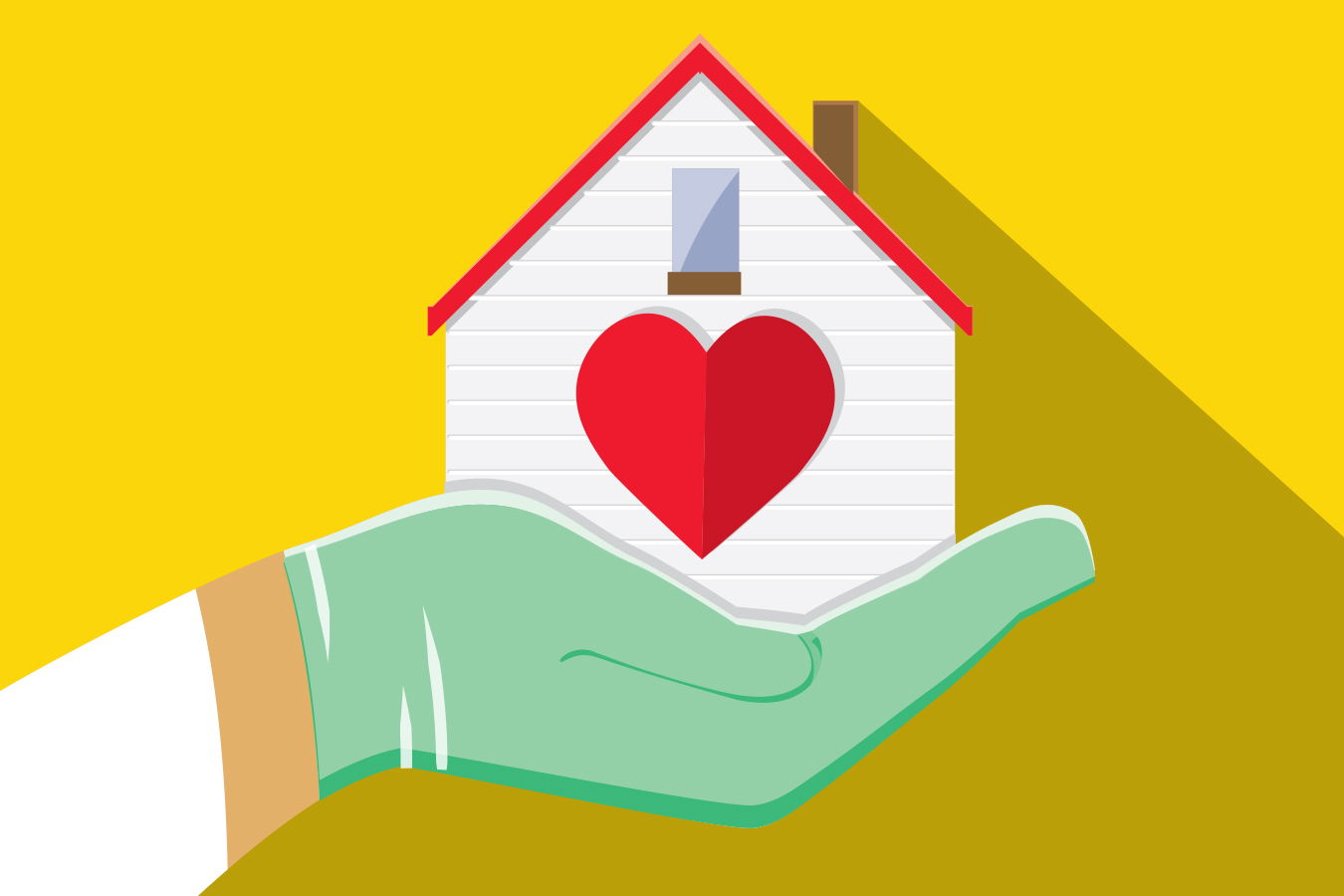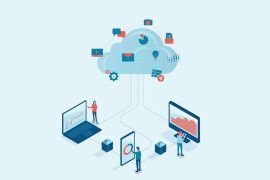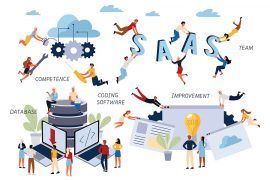You have the job of keeping careful records, ensuring regulatory compliance, and communicating critical updates and expectations to caregivers and clients as a Home Health Care Agency. This means you’ll need to keep track of a number of things, including scheduling, billing and invoicing, and patient healthcare plans, among other things.
All of these chores can be aided by home healthcare software, which makes daily operations operate more smoothly.
Table of Contents
What is Home Health Care Software?

Home Health Care Software makes it easier to handle home health care agencies, patients, and therapeutic and rehabilitative services. While the terms “home health care” and “home care” are often used interchangeably, home health care services are a form of home care service. In the comfort of their own homes, home health care businesses and service providers provide both skilled and unskilled (or non-medical) care, as well as short-term and long-term care to patients. Home health care software can help registered nurses, rehabilitative therapists, home aides, medical social workers, and caseworkers integrate business operations, centralize processes and workflows, optimize scheduling and caregiving responsibilities, and streamline claims and insurance invoicing.
Features of a Home Health Care Software
A product must meet the following criteria to be considered for inclusion in the Home Health Care category:
- Be specific to the field of home health care.
- Organize the services of aides, nurses, and other healthcare professionals to meet the needs of the customers.
- Scheduling, communication, paperwork, and/or patient records management can all be improved.
- Streamline the delivery of care to patients who are confined to their homes.
Deployment Options For Home Care Software
Cloud-based and on-premise deployments are the two basic forms of home health care software deployments.
The vendor hosts cloud-based solutions on their own or third-party servers, so your firm isn’t responsible for upkeep, upgrades, or data storage. You must pay monthly or annual membership costs for cloud-based options.
On-premise choices are housed on your company’s internal servers, so you’re in charge of maintenance, upgrades, and data storage. For on-premise choices, you’ll need to pay a one-time cost for the software license.
Benefits of a Home Health Care Software
The following are some of the advantages of using home healthcare software in a medical setting:
- Patient data can be accessed quickly.
To handle home-based care, most healthcare organizations use cloud-based software. This software’s Enterprise Resource Planning (ERP) features allow staff members to view patient data from any device. In a home healthcare setting, cloud-based ERP is becoming more popular than on-premise medical record-keeping.
- An improved user experience
The home healthcare software can provide caregivers with a list of patient-specific chores and reference notes about the patient in advance. This will allow them to provide the best possible healthcare at home for the patient.
- An improved user experience
The home healthcare software can provide caregivers with a list of patient-specific chores and reference notes about the patient in advance. This will allow them to provide the best possible healthcare at home for the patient.
- Workflow that is free of paper
When administrative activities for the organization’s workers can be completed by ticking suitable boxes on a mobile app, they become significantly less time-consuming. Employees will be happier as they will not have to fill out numerous forms for each patient engagement.
- Scalability
When the home healthcare model begins to generate revenue for your company, the time will come to expand. A centralized software system would save time and money when adding additional employees or expanding services to a new site.
Key questions to ask a vendor before you buy
Choosing between cloud-based or on-premise tools can be difficult. Consider your business needs and ask vendors questions to make sure the tool you choose is the right one for your agency.
- Is the software compliant with regulatory standards (e.g., HIPAA)?
- How does the software ensure the protection of sensitive client information?
- With on-premise options, what is the availability of customer support?
- How many users will have access to the platform under our preferred plan
Now that we have looked at what you must look for in a home health care software for it to comply with all your needs let us look at some viable options in the category so that you can choose the best home care software for your company.
Top 5 Home Health Care Software
WellSky Home Health
is a home healthcare management software that aids in the growth of healthcare companies. WellSky Home Health’s team is dedicated to assisting clients in increasing their efficiency, improving communication, increasing profits, and coordinating patient care. The software’s comprehensive solutions allow hospitals to focus less on operational challenges and more on providing exceptional patient care. In addition to homes, practices, and buildings, WellSky’s creative solutions benefit entire communities. With a client retention rate of 99 percent, this software has become the most trusted partner for businesses across the country. Eligibility, intakes, checks, and calendar management are all improved with WellSky Home Health. This program allows agencies to accept referrals in a smooth manner.
Features
Activity Dashboard
Billing & Invoicing
Electronic Signature
Monitoring
Patient Records Management
Scheduling
Pricing: the pricing model is per user, starting from is not provided by the vendor
Myunity
Netsmart (previously DeVeromyUnity )’s Home Health and Hospice is a forms-based clinical point-of-care system that is straightforward, compliant, and user pleasant. It combines the most important features of Netsmart’s existing offerings into a single, unified enterprise platform.
With this next-generation technology, you may have a person-centered EHR in your home health, hospice, pediatric, and private duty care environments. Organizations receive seamless transitions of care, faster intake and scheduling, and access to see and manage patient care and billing across various care settings by merging the particular requirements of each care setting into a single enterprise platform.
Features
- Payroll Management
- Work order management
- Electronic Signature
- Billing & Invoicing
- Charting
- Admissions Management
- Scheduling
- Incident Management
- Insurance Management
- Claims Management
Pricing
Monthly and Yearly based subscriptions.
CareSys
This clinical software is a strong web-based technology that plays an important part in patient care, patient monitoring, and patient follow-up in clinic management software. CareSys keeps track of patients’ pre-op, post-op, follow-up, and pathology medical information in practice management software. CareSys is a comprehensive software package for the healthcare industry.
It offers care organizations a business-specific application that combines financial, operational, and management functions into a single integrated system. As a result, Caresys can ensure that continual information is communicated across the organization and that management information is considerably improved.
Importantly, CareSys is the only system that allows information to be exchanged cost-effectively among any number of individuals in any location.
The CareSys solution makes use of the growing popularity of high-speed internet and adds the unique capability of interacting with database information via the internet, all without the need for a sophisticated IT infrastructure.
Features
- Asset Management
- Appointment Management
- Charting
- E-Prescribing
- Meaningful Use Certified
- Patient Portal
Pricing: one-time payment model
Conclusion
When it comes to people with particular health conditions or geriatric care, hospital-based healthcare services are not always feasible. For this group of people, transportation issues obstruct access to healthcare. Long hospital stays have also been linked to the worsening of some medical problems, particularly autoimmune diseases.
For senior persons and patients with decreased motor function, home healthcare is the ideal option. In addition to managing chronic health difficulties, at-home care makes sense throughout the healing phase of medical conditions.
The demand for software solutions that can help digitalize the management of these healthcare services is urgent. Home health care software, in particular, make it easier for home healthcare personnel to do their duties, allowing them to provide better care as they are long term care software
For more information on Home health care software head to SaaSworthy.com.






